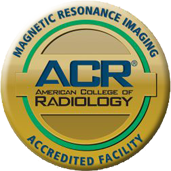MRIs for TMJ
Approximately 10 million individuals in the US are affected by Temporomandibular Joint (TMJ) abnormalities according to the National Institutes of Health data. Magnetic resonance imaging (MRI) plays an important role in the evaluation of this disorder. MRIs can be performed to help visualize the face area in a non-invasive manner. Because of its excellent anatomic depiction of the joint, an MRI of the TMJ is considered the imaging gold standard.
The jaw joint is one of the most complex joints in your body. Clinically diagnosing TMJ abnormalities can be challenging due to the complex structures and due to psychosocial factors (AKA Stress). Stress, Anxiety
 |
Anxiety and stress can influence TMJ symptoms by making people more likely to grind their teeth, clenching their jaw, or tightening their jaw muscles. TMJ disorders are also more common in people with other dental problems (like a bad bite), joint problems (like arthritis), muscle problems, or a history of trauma to the jaw or face. Interestingly, the highest demographic of patients with TMJ is women ages 20 to 40 years old representing 80% of patients being treated. According to the National Institute of Dental and Craniofacial Research (NIDCR), TMJ disorders are the second most common pain-causing musculoskeletal conditions after chronic low back pain. |
Specialists and physicians who typically diagnose TMJ include:
- Dentists,
- Primary care physician
- Pain specialist
- Oral surgeon
- Orthodontist
- Ear, nose, and throat doctor (ENT)
- Neurologist
As with stress, TMJ symptoms may come and go. Rest may help ease the joint pain, but it can delay a proper diagnosis. That is why it is extremely helpful to have an MRI study conducted while you are having a flare up and symptoms are present. MRIs can reveal problems with the joint's discs that help cushion the movement of your jaw. MRIs to recognize TMJ or jaw irregularities. examining the 5 pairs of muscles that control your jaw.
As a benefit to referring physicians, Sonos Imaging offers Same-Day MRIs while symptoms are still present and 24-hour Reports to help physicians determine a quicker TMJ diagnosis and treatment plan.


